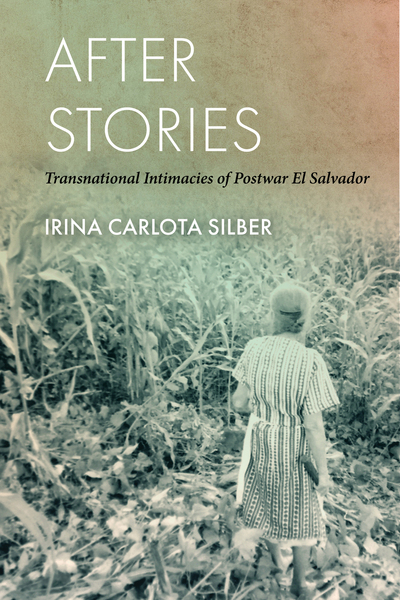
August 2022
280 pages.
from $28.00
Paperback now $14.00 (50% off)
Hardcover ISBN: 9781503609099
Paperback ISBN: 9781503632172
Ebook ISBN: 9781503632189
Bronze Medal in the Current Events I (Political/Economic/Foreign Affairs) for the 2023 Independent Publisher Book Awards (IPPYs).
Winner of the 2023 APLA Book Prize in Critical Anthropology, sponsored by the Association for Political and Legal Anthropology (APLA).
Bronze Medalist for the 2023 International Latino Book Award in the Best Academic Themed Book, College Level - English Category, sponsored by the Latino Literacy Now.
Honorable Mention for the 2023 Victor Villaseñor Best Latino Focused Nonfiction Book Award, sponsored by the International Latino Book Awards and Latino Literacy Now.
Honorable Mention for the 2022 Arthur J. Rubel Book Prize, sponsored by the Society for Latin American and Caribbean Anthropology (SLACA).
This book builds upon Irina Carlota [Lotti] Silber's nearly 25 years of ethnographic research centered in Chalatenango, El Salvador, to follow the trajectories—geographic, temporal, storied—of several extended Salvadoran families. Traveling back and forth in time and across borders, Silber narrates the everyday unfolding of diasporic lives rich with acts of labor, love, and renewed calls for memory, truth, and accountability in El Salvador's long postwar. Through a retrospective and intimate ethnographic method that examines archives of memories and troubles the categories that have come to stand for "El Salvador" such as alarming violent numbers, Silber considers the lives of young Salvadorans who were brought up in an everyday radical politics and then migrated to the United States after more than a decade of peace and democracy. She reflects on this generation of migrants—the 1.5 insurgent generation born to forgotten former rank-and-file militants—as well as their intergenerational, transnational families to unpack the assumptions and typical ways of knowing in postwar ethnography. As the 1.5 generation sustains their radical political project across borders, circulates the products of their migrant labor through remittances, and engages in collective social care for the debilitated bodies of their loved ones, they transform and depart from expectations of the wounded postwar that offer us hope for the making of more just global futures.
About the author
Irina Carlota [Lotti] Silber is Professor of Anthropology at The City College of New York. She is the author of Everyday Revolutionaries: Gender, Violence, and Disillusionment in Postwar El Salvador (2011).
"How often do anthropologists rethink field materials from a long-completed project? It's rare. And it's even more rare for them to do so with the depth of commitment and breadth of knowledge Silber brings to this remarkable book. Writing with clarity, humility, and a deep sense of engagement, she has produced an ethnography unlike any I've ever read."
—Danilyn Rutherford, The Wenner-Gren Foundation
"After Storiesis a beautiful example of how profoundly powerful reflexive, long-term ethnographic research can be! Silber urges us to question the relationships between the 'befores' and 'afters' of transformative change, reframes our understandings of truth and justice, and reorients the project of anthropology as a whole. A real tour de force!"
—Deborah Thomas, University of Pennsylvania
"Ethnographic studies like Silber's tend to defy singular theses, meaning the whole is often greater than the sum of its parts....Recommended."
—E. Ching, CHOICE
"After Stories is accessible to a wide audience and written in the voice of an ethnographer who has spent time listening to, and learning to tell, stories about rural El Salvador.... The book contains several creative interventions, including a critical, disquieting reflexivity and addressing the reader directly with the use of the second person singular. It is a valuable addition to the social sciences and opens multiple possibilities for interdisciplinary theorizing and collaboration."
—Mike Anastario, Journal of Anthropological Research